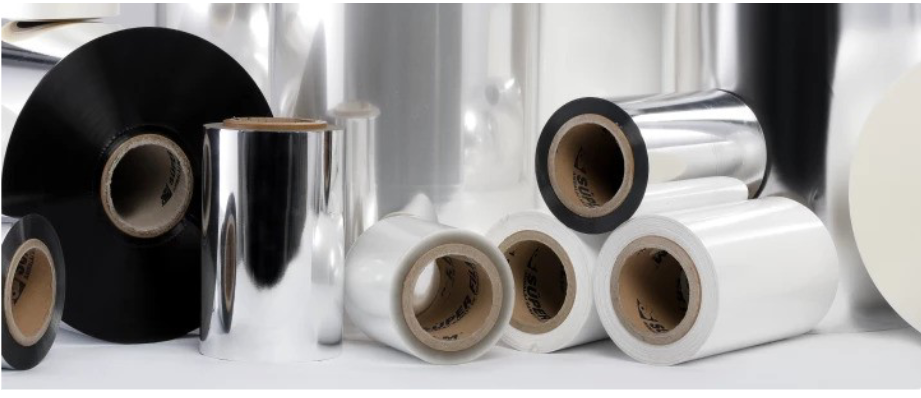Materials that balance performance, cost, and sustainability are needed in the ever-changing packaging industry. BOPP (Biaxially Oriented Polypropylene) heat-sealable films are one of the most reliable and sustainable materials utilised today. These films have revolutionized product packaging by offering exceptional sealability and barrier protection, while also minimizing the environmental footprint of packaging. Understanding howHeat Sealable Bopp Film improves packaging sustainability is crucial as manufacturers and consumers prioritise sustainability.
- Understanding BOPP Heat Sealable Films
- Sustainability Starts with Material Efficiency
- Energy Conservation in Manufacturing and Sealing
- Extended Shelf Life and Waste Reduction
- Recycling and Circular Economy Integration
- Reducing Non-Renewable Resource Use
- Compatible with eco-friendly inks and printing
- Increasing Transport and Storage Efficiency
- Toxic-Free Packaging for Consumer Health
- Versatility in Multiple Applications
- Meeting global regulatory and consumer expectations
- Challenges and the Future
- In conclusion, greener packaging is possible
Understanding BOPP Heat Sealable Films
Stretched in both the machine and transverse directions, BOPP polypropylene film improves strength, clarity, and durability. When supplemented with a heat-sealable layer, typically achieved through co-extrusion or coating, this base film can form strong, reliable seals under specific heat and pressure conditions. BOPP heat-sealable films are valuable in businesses where sealing integrity affects shelf life and customer safety.
The heat-sealable layer activates at lower temperatures than other materials, enabling faster sealing cycles and reduced energy consumption. BOPP heat-sealable films are gaining popularity in the food and beverage, pharmaceutical, cosmetics, and household goods industries due to their unique features.
Sustainability Starts with Material Efficiency
Material efficiency helps BOPP heat-sealable films promote sustainability. Because they’re lightweight, these films use less raw material than complex polymers, glass, or metal. Lower shipping weights and material utilisation save money and reduce pollution.
BOPP films’ superior mechanical strength and barrier properties enable downgauging—using thinner films without compromising performance. Manufacturers can reduce waste and enhance the environmental impact of packaging by using thinner but equally efficient BOPP films instead of thicker ones.
Energy Conservation in Manufacturing and Sealing
Sustainability also requires energy efficiency, which BOPP heat-sealable films excel at. These films’ heat-seal layer activates at lower temperatures, speeding up sealing and machine cycles. Manufacturers can reduce their carbon footprint and operational costs by using less energy during the packaging process.
BOPP films also expedite manufacturing lines by working with high-speed packaging machines. BOPP heat-sealable films are ideal for companies seeking sustainability without compromising production efficiency due to their lower sealing temperatures and faster throughput.
Extended Shelf Life and Waste Reduction
Food spoilage and product deterioration are significant contributors to global waste, particularly in the food industry. BOPP heat-sealable films help solve this problem by blocking moisture, oxygen, and impurities. Barrier coatings or co-extruded layers can be added to these films to fulfil packaged product needs.
BOPP heat-sealable films enhance product shelf life by safeguarding contents from external causes that degrade or deteriorate. This reduces food and material waste, decreases product returns, replacements, and disposals, and promotes sustainability. Improvements in shelf life lessen the need for preservatives and chemicals, supporting the clean-label trend of natural, minimally processed products.
Recycling and Circular Economy Integration
Packaging material recycling is a priority as the packaging industry moves towards a circular economy. Traditional multi-material laminates are hard to recycle because they contain incompatible elements. However, BOPP heat-sealable films can be developed as mono-material structures, simplifying recycling.
Packaging can be made from a single material, utilizing BOPP films with heat-sealable layers. Compatibility with existing recycling streams improves material recovery and allows closed-loop recycling. In markets with polypropylene recycling facilities, these films reduce landfill waste and improve resource efficiency.
Multiple improvements are underway to enhance the recyclability of BOPP heat-sealable film. Manufacturers are creating barrier coatings that retain film performance and are compatible with the polypropylene recycling stream. These innovations will help places with rigorous environmental standards meet sustainability goals and comply with regulations.
Reducing Non-Renewable Resource Use
Moving away from fossil fuels is a sustainable development goal. Although polypropylene is made from petrochemicals, bio-based versions are emerging. These low-carbon polypropylene alternatives use sugarcane, maize, or other biomass feedstocks.
Bio-based polypropylene in BOPP heat-sealable films may lessen dependence on non-renewable resources while maintaining industry performance. BOPP heat-sealable films are more environmentally friendly than many conventional polymers due to their renewable supply and recyclability, although adoption is still in its early stages.
Compatible with eco-friendly inks and printing
Beyond film, printing, and ink selection, packaging sustainability is also affected by other factors. BOPP heat-sealable films work well with water-based and UV-curable, eco-friendly inks. These inks release fewer VOCs, causing less harm to humans and the environment.
BOPP films’ high surface energy, especially after corona or plasma treatments, improves ink adherence and print quality. This compatibility allows brilliant, durable printing without affecting recyclability or environmental performance.BOPP Matte Film, as a heat-sealable film, enables firms to adopt sustainable packaging without compromising aesthetics or functionality when used in conjunction with digital and flexographic printing.
Increasing Transport and Storage Efficiency
Transportation and storage efficiency are often overlooked in sustainability considerations. BOPP heat-sealable films improve this region by providing superior dimensional stability, tensile strength, and puncture resistance. These traits prevent package damage and loss during handling, transit, and storage along the supply chain.
Due to their lightweight nature, BOPP films reduce transportation costs and fuel consumption. For large distribution networks, cumulative weight and volume savings can significantly enhance the environmental and economic sustainability of logistics operations.
Toxic-Free Packaging for Consumer Health
BOPP heat-sealable films are safe, food contact compliant, and environmentally friendly. They do not leech harm into packaged items and contain no chlorine or heavy metals. This makes them ideal for packing infant food, medical supplies, and personal care products.
BOPP films are non-toxic, meeting consumer desire for safer, cleaner, and more responsible packaging. BOPP heat-sealable films can enhance brand trust and meet global regulatory standards as awareness of chemical safety increases, particularly in health-conscious regions.
Versatility in Multiple Applications
BOPP heat-sealable films are well-suited for use in pouches, wrappers, sachets, bags, and lidding films. This versatility simplifies inventory management and reduces waste by minimizing the use of packing materials.
To optimise packaging operations and promote sustainability, using a single material across product lines is a significant benefit. BOPP films can be combined with other materials to create hybrid packaging solutions that strike a balance between performance and sustainability.
Meeting global regulatory and consumer expectations
Governments, business groups, and consumers are increasingly seeking more environmentally friendly packaging. Global laws regulate the use of single-use plastics, waste disposal, and carbon emissions. BOPP heat-sealable films provide a viable solution for companies to develop more sustainable packaging options that meet these evolving needs.
BOPP films also support CSR and ESG aims. Switching to recyclable, lightweight, and energy-efficient films like BOPP can demonstrate an organisation’s commitment to sustainability and climate action.
Challenges and the Future
Despite its benefits, BOPP heat-sealable films have drawbacks. Regional recycling infrastructure variability remains the major challenge. Mono-material BOPP structures provide fewer environmental benefits in places without polypropylene recycling streams.
Higher production costs and limited availability are also slowing the use of bio-based polypropylene. As technology improves and market demand rises, economies of scale should make bio-based BOPP more affordable.
The barrier characteristics of entirely recyclable films are also being improved. BOPP films exhibit strong moisture resistance, but researchers are working to enhance their oxygen and aroma barriers without compromising recyclability.
In conclusion, greener packaging is possible
BOPP heat-sealable films are key to sustainable packaging. They are a formidable alternative to traditional packaging due to their low weight, high strength, barrier performance, and energy-efficient sealing. BOPP heat-sealable films are gaining importance as industries worldwide adopt circular economy principles and reduce their environmental impact.
These films meet modern sustainability goals by reducing material and energy use, facilitating recycling, and promoting cleaner printing practices. Continuous improvement in film technology, recycling infrastructure, and renewable raw materials promises a more sustainable future, despite the challenges it presents.
BOPP heat-sealable films fromChina Bopp heat sealable film suppliers are a functional solution that helps create a cleaner, more resource-efficient, and commercially viable packaging business in a world where environmental responsibility is necessary. As manufacturers, retailers, and consumers shape the future of packaging, BOPP heat-sealable films will help build it one package at a time.

















